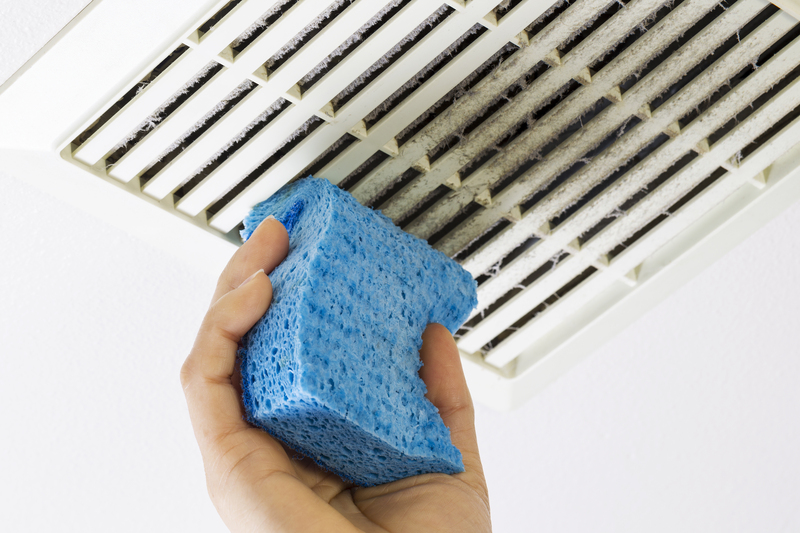Effective Tips for Banishing Damp Odors from Your Home
Posted on 28/08/2025
Effective Tips for Banishing Damp Odors from Your Home
Dealing with persistent damp odors at home can be a real challenge. Not only are musty smells unpleasant, but they can also indicate underlying issues like excess moisture, mold, or mildew, which may negatively impact your health and the structure of your property. Fortunately, there are a range of practical solutions to tackle these unwanted scents and keep your living spaces smelling fresh. In this comprehensive guide, we'll provide you with effective tips for eliminating damp odors from your home, including both short-term fixes and long-term prevention strategies.
Understanding What Causes Damp Odors
Damp odors, often described as musty or moldy, arise when moisture accumulates in your home. This excess dampness creates an environment where mold, mildew, and bacteria thrive, producing unpleasant smells. Common culprits include poor ventilation, water leaks, high humidity, and condensation. Identifying the root cause is the first step in effectively removing damp odors from your house.
- Leaky pipes or roofs can allow water to seep into walls, ceilings, or floors.
- Poor ventilation in basements, bathrooms, or laundry rooms traps humidity.
- Condensation on windows and cold surfaces promotes mold growth.
- Flooding or water damage that hasn't been properly dried out.
- Wet fabrics like carpets, curtains, or furniture cushions.

Immediate Actions to Eliminate Musty Smells
1. Identify and Remove the Source
The most effective way to banish damp odors in your home is by eliminating what's causing them. Scan for leaks, signs of water intrusion, or hidden mold. If you find wet materials, like carpeting or drywall, dry or remove them promptly.
- Check under sinks and behind appliances for hidden leaks or dripping pipes.
- Inspect basements and attics for standing water or staining.
- Examine caulking and seals around showers, tubs, and windows for gaps.
2. Increase Air Circulation
Move fresh air through your living spaces to help dry out dampness and sweep away stagnant odors. Open windows and doors when possible, and use fans to promote airflow.
- Utilize ceiling and portable fans in affected areas.
- Keep interior doors open to increase circulation throughout the home.
- Ventilate closets and less-used rooms by leaving doors ajar.
3. Use a Dehumidifier
Humidity control is vital for getting rid of dank, lingering smells. A dehumidifier extracts moisture from the air, reducing the chance for odors and mold growth.
- Place a dehumidifier in areas with persistent humidity--basements, bathrooms, or laundry rooms.
- Empty the reservoir regularly so the appliance can operate efficiently.
- Set relative humidity to 50% or lower for best results.
4. Clean and Disinfect Surfaces
Wipe down walls, floors, and windows with a solution of water and mild detergent, or use a vinegar-based cleaner to neutralize damp, musty scents. For stubborn mold, a diluted bleach solution (1 cup bleach to 1 gallon water) can be effective--just be sure to ventilate the area well and follow safety precautions.
- Scrub mold and mildew from grout, tiles, and non-porous surfaces.
- Launder fabrics like curtains, cushion covers, and linens regularly.
- Professional steam cleaning may be needed for carpets and upholstery.
5. Absorb Odors Naturally
Baking soda is a natural deodorizer perfect for treating musty odors in carpets or soft furnishings. Sprinkle, let it sit overnight, then vacuum. You can also use activated charcoal, coffee grounds, or white vinegar in open containers to trap smells.
- Place bowls of baking soda or charcoal in closets and on shelves.
- Refresh and replace natural odor absorbers every few weeks.
Long-Term Prevention Strategies
Once you've addressed immediate problems, preventing a return of damp house smells is crucial. Consider these strategies to keep odors at bay permanently.
1. Address Structural Issues
- Fix roof leaks promptly and seal gutters to prevent water intrusion.
- Ensure walls and basements are properly waterproofed.
- Install or replace weather stripping around windows and doors.
2. Improve Ventilation
- Install exhaust fans in high-moisture areas like kitchens and bathrooms.
- Consider energy recovery ventilators (ERVs) to bring in fresh air while saving energy.
- Open windows daily, at least for a short time, especially during dry weather.
3. Maintain HVAC Systems
- Replace furnace and air conditioner filters regularly--dirty filters can harbor mold and spread odors.
- Schedule annual HVAC inspections and duct cleanings if needed.
- Install a whole-house dehumidifier for larger properties prone to dampness.
4. Regular Cleaning Routine
- Deep-clean soft furnishings and rugs at least twice a year.
- Launder bedding and curtains frequently, especially in humid seasons.
- Empty and clean closets to prevent clothes from absorbing moisture and odors.
5. Store Items Properly
- Use moisture-proof containers for items stored in basements or attics.
- Add silica gel packs to storage bins, closets, or drawers as moisture absorbers.
- Keep storage areas tidy and uncluttered to encourage air circulation.
Natural Remedies for Damp Odors
If you prefer chemical-free solutions for banishing musty smells in your home, there are plenty of options. Here are some tried-and-true natural odor removers:
- Citrus Peels: Place orange or lemon peels in affected areas for a fresh scent.
- Essential Oils: Use oils like tea tree, eucalyptus, or lavender in a diffuser or spray to naturally deodorize the air and fight mold.
- Houseplants: Certain plants such as peace lilies, ferns, and spider plants act as natural air purifiers.
- Salt: Bowls of salt can absorb moisture in small, enclosed spaces.
When to Call a Professional
Most damp odor removal projects can be done independently, but some situations require expert intervention:
- Persistent or large-scale mold growth that returns after cleaning.
- Structural dampness causing significant damage or involving electrical systems.
- Allergy or health issues that may be aggravated by mold or mildew exposure.
If you're in doubt, a professional assessment can identify sources of dampness, test for hidden mold, and recommend structural repairs. The cost of professional remediation is often offset by improved health and property value.
Extra Tips for Specific Areas
Banishing Damp Odors from the Basement
- Inspect sump pumps and drains regularly for leaks or blockages.
- Use a waterproofing paint on basement walls to seal out moisture.
- Avoid storing cardboard boxes directly on the floor--instead, use shelving and plastic bins.
Eliminating Musty Smells in the Bathroom
- Keep exhaust fans running during and after showers.
- Check under sinks and behind toilets for slow leaks.
- Quickly launder wet towels and bath mats to prevent mildewy odors.
Freshening Up Closets and Bedrooms
- Add cedar blocks or sachets of dried herbs for natural fragrance.
- Rotate clothes seasonally to reduce damp accumulation.
- Install louvered or vented doors for improved airflow.

Why Addressing Damp Odors Matters
Unpleasant smells are more than an annoyance--they often signal water damage, mold, or poor air quality. If left unchecked, these problems can lead to costly repairs and health issues, including allergies and respiratory trouble. Banishing damp odors from your home is essential for your comfort, well-being, and the longevity of your property.
By combining immediate odor elimination with ongoing maintenance and prevention, you can enjoy a fresh, healthy, and inviting home--free from musty, damp smells.
Conclusion: Create a Fresh, Inviting Home Environment
Whether you've just noticed a musty smell or are battling chronic damp issues, following these effective tips for getting rid of damp odors will make a significant difference in your quality of life. Tackle moisture at the source, stick to smart cleaning routines, and invest in prevention to keep your living spaces pleasant and odor-free.
- Identify and fix water issues quickly
- Use odor absorbers and natural remedies
- Maintain good ventilation and humidity control
- Don't hesitate to consult professionals for stubborn problems
By applying these strategies, you'll banish musty odors and enjoy a fresher, healthier interior for years to come!
Latest Posts
Top-Rated Tools for Carpet Cleaning
Eliminate Pet Odors for a Fresher Home
Master the Art of Curtain Cleaning with Effective Techniques
Mastering the Art of Efficient Window Cleaning
Master the Art of End of Tenancy House Cleaning: Essential Tenant Guide



.png)